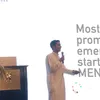Startup Guide Cairo: how this city is a leading hub for mobility and fintech entrepreneurs
This new guidebook on Cairo covers emerging startups, accelerators, and supporting institutes in one of the leading entrepreneurial hubs of the MENA region.
The Startup Guide series of books, launched in 2014 by Copenhagen-based publisher Sissel Hansen, covers over 20 cities such as London, Stockholm, Lisbon, and Miami. See our reviews of the guidebooks for Berlin, Munich, Zurich, Johannesburg, Singapore, New York, and Paris.

Startup Guide Cairo is spread across 200 pages and makes for an informative and entertaining read, with profiles of founders, co-working spaces, investors, educational programmes, and other ecosystem players.
The Egyptian capital is also a blossoming startup hub buzzing with youthful energy, Sissel begins. It has been ranked as one of the more attractive cities in the Middle East and North African (MENA) region for foreign investment and tech startups. It has a low cost of living and a massive population of young people eager to become entrepreneurs.
Cairo is home to three of the top eight African universities. “It has one of the most tech-savvy communities in the continent, and every year, more than 250,000 students graduate from universities in Cairo, at least 25,000 of them with a technology background,” explains Khaled Ismail, Chairman of HIMangel.
The RiseUp Summit has been held in Cairo since 2013. Several startup exits have made the news, such as Sysdsoft (sold to Intel) and Fawry (sold to a consortium of investors). Scale-stage startups that have recently raised funds include Fawry (e-payment network), Swvl (bus-booking app), Wuzzaf, and Yaoota.
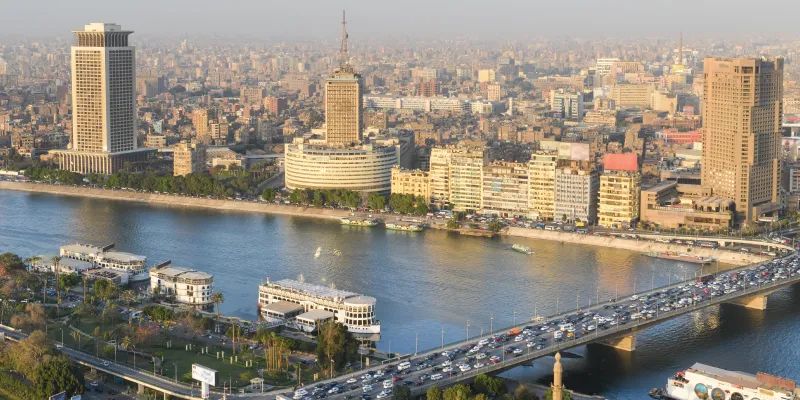
Overview
The book begins with an overview of Cairo’s facts and necessities, such as ease of doing business (bureaucratic), tax accounting (complicated), cost of living (suits any budget), Internet speeds (relatively slow), environment (dusty), people (generous and hospitable), punctuality (“don’t get offended if somebody’s late”), traffic (heavy), driving (not for the faint-hearted), ride-sharing (via Uber or Careem), and hip neighborhoods (Zamalek, Maadi, Garden City).
Egypt has a population of 97.5 million, approximately 60 percent of whom are below the age of 30. The Greater Cairo metropolitan area has a population of over 20 million. Cairo is not only the capital of Egypt but also its cultural hub.
According to the Global Entrepreneurship Monitor, Egypt ranks in the top seven countries in the world in holding entrepreneurship in high regard as a career choice with high social status. Around 55 percent of Egyptians indicate an interest in starting a business in the coming three years - twice the global average.
The top four cities in Enpact DataLab’s Startup Friendliness Index for MENA are Amman, Tunis, Beirut, and Cairo. There were nearly 50 percent more startups in 2018 and several new high-equity success cases since 2017.
Startup profiles
One section of the book profiles 10 startups based in Cairo. They include MerMaid (on-demand cleaning service with a high standard for customers and cleaners) and PayMe (an online-payment tool for SMBs).
XPay enables clubs and educational communities to collect dues and manage memberships in an easy manner. 7aweshly is a micro-saving mobile app targeting unbanked populations. Users can deposit funds from ATMs, supermarkets or pharmacies.
Bassita is a crowdfunding site (‘clickfunding’) for social causes. For example, it worked with UNICEF on a campaign to fund water for Egyptian homes.
Weelo is a cloud-based marketplace serving customers, supermarkets and their suppliers. By digitalising the supply chain, it provides real-time inventory updates for better customer service and satisfaction.
Chefaa is an app, which connects patients with a network of pharmacies to make sure people have easy access to their recurring medicines. Faggala is an e-commerce platform for stationery products and services. Schools can upload customised profiles to help parents with purchases and textbook reservation.
MayDay provides real-time, safe roadside assistance to motorists in need, with a wide network of service providers. There is 24x7 support and a transparent payment process. There are reportedly around five million cars in Egypt and the potential for around 300,000 breakdowns annually.
Wasel is an intercity travel startup that allows users to book shared or private vehicle transfers. It connects travellers in Cairo, Beni Suef, Minya, and Assuit.
The above startups benefitted from programmes such as TIEC’s incubator, Microsoft for Startups, StartEgypt grants, and C3 Social Impact Accelerator in Dubai. Some of them also featured in Digest Africa’s NEXT50 list of African startups.
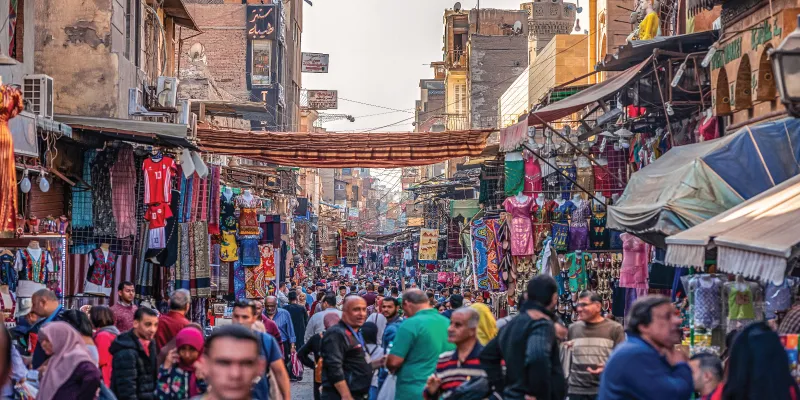
Startup ecosystem
Two sections of the book profile the support system for startups, ranging from co-working spaces to programmes at incubators and accelerators. For example, Endeavor Egypt is led by entrepreneurs dedicated to helping scaleups. It also offers the Endeavor Catalyst impact fund, and connections to local, regional, and global investors.
The American University in Cairo (AUC) has hosted the AUC Venture Lab (V-Lab) since 2013. It runs a general accelerator programme as well as a special one for fintechs. There are training, mentoring, and co-working facilities. V-Lab runs two four-month cycles each year and provides zero-equity seed capital to startups upon completion.
Falak Startups, Egypt’s largest startup accelerator, supports early-stage startup founders through a six-month acceleration programme culminating in a Demo Day. It offers funding of one million Egyptian Pounds ($58,000) to selected startups with a workable prototype.
Flat6Labs has funded more than 100 startups since it launched in 2011. It was founded by Sawari Ventures in partnership with AUC. It offers initial funding of $44,000, with follow-on investment of up to $120,000.
The Founder Institute, the world’s largest pre-seed startup accelerator, offers a 14-week programme in Cairo. Through its Equity Collective, mentors can become investors to graduate companies. The programme is rigorous; less than 30 percent of accepted founders complete it.
The MINT Incubator runs a three-month programme designed for entrepreneurs at the MVP stage, and is backed by EGBANK. It has partnered with Cairo Angels for growth opportunities.
Nahdet El Mahrousa (meaning ‘Renaissance of Egypt’) has incubated more than 150 social enterprises in a wide range of sectors. The programme lasts for one to two years, in sectors like renewables, waste management, creative industries, civic engagement, and social impact.
The Technology Innovation and Entrepreneurship Centre (TIEC) was launched in 2010. It runs initiatives like InnovEgypt, the TIEC Entrepreneurship Accelerator (TEA) program, StartIT business plan competition, Startup Support programme for growth-stage startups, and EgyptInnovate platform to connect innovators.
Cairo has a wide range of co-working spaces as well, such as AlMaqarr (founded in 2012) and Startup Haus Cairo (founded by Enpact). Opened in 2017, Ideaspace also has a fabrication lab for prototyping.
District Spaces, founded in 2011 by serial entrepreneur Mazen Helmy, was the first co-working space in Egypt. It hosts professional and cultural events, from skill-building workshops to independent movie screenings and stand-up comedy nights.
Founded in 2013, the GrEEK Campus is located just off Tahrir Square in what was originally two Greek schools. It includes an outdoor amphitheatre and a rooftop garden. With the motto of ‘connect, collaborate, and co-create,’ it also hosts Uber’s Egyptian team.
KMT House, founded in 2017, was designed as an urban tech space. Co-founder and CEO Mazen Helmy says that “innovation can reshape a city to be more livable and vibrant”. The space includes an incubator for urban tech solutions, and the rooftop garden is used as a demo lab for urban farming, composting and water recycling solutions.
This section also profiles the ‘face of the space’ of some of these organisations. For example, Moustafa Khater of the GrEEK Campus earlier built 183 schools for girls across Egypt, and was a director at the Flat6Labs accelerator in Cairo.
Expert insights
One section of the book provides expert tips from accelerators and startup consultancies in the city. The advice covers product-market fit, customer engagement, marketing, sustainability, and talent.
“You have to understand how you’re going to monetise your business, especially with people tending toward free or freemium solutions in emerging markets,” advises Ramy Taha, Head of Digital Banking and Marketing at ALEXBANK.
Only about 30 percent of the adult population in Egypt uses bank accounts, so there is a lot of opportunity for fintech startups. “Without a strong customer experience, you’re not going to be able to get your product off the ground. Today, you’re not just competing with other banking or financial solutions. You’re competing against every other application on your device,” Ramy cautions.
“Founders tend to depend on different advisors and consultants as they grow, and oftentimes these pieces of advice aren’t always aligned with each other, which can cause confusion rather than be a help to the entrepreneur,” observes Waseem Arsany, Business Development Partner at Benchmark Consultancy, and Managing Director of B-Hub coworking spaces.
“Making an impact and making money doesn’t have to be mutually exclusive,” says Wessam El Beih, Country Director of Zurich-headquartered Drosos Foundation in Egypt. “A big task at the beginning of your entrepreneurial journey is bringing on motivated people who can identify with your mission – on a shoestring budget,” she explains.
Dalia Abd-Allah, Head of Business Innovation at the Egyptian-German Promotion of SMEs (a GIZ initiative), cautions that it takes time to build a successful and sustainable startup. “Being patient is truly a virtue,” she adds. The initiative supports startups in renewable energy, sanitation, irrigation, and waste management. Dalia believes that strategic collaborations can also be valuable for startups.
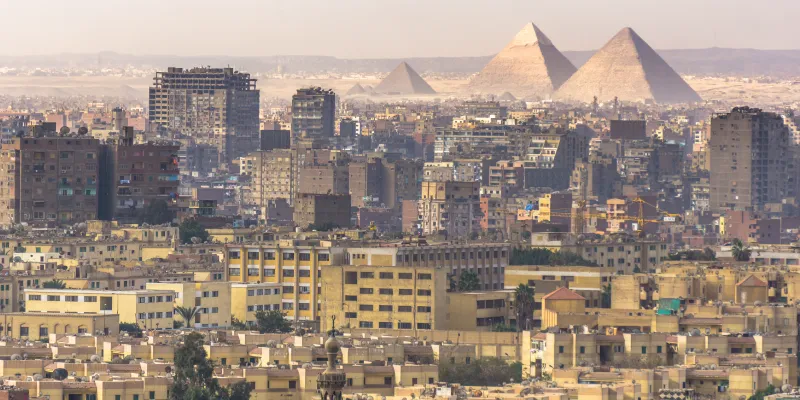
Founder advice
One section of the book interviews founders of four startups, tracing their entrepreneurial journeys, advice received, lessons learnt, and tips for the next wave of aspiring entrepreneurs.
KarmSolar is a solar technology and integration company that develops solutions for agriculture, tourism, and industry. Ahmed Zahran, Founder and CEO, earlier worked in Tunisia and the UK.
“Focus on clients that will enable you to scale and take more risks. Those are the clients that are going to add value to you,” he advises aspiring entrepreneurs. “If you understand human incentives, you can add value for all stakeholders,” he adds.
Companies should also have an effective knowledge sharing practice. “A company should focus more on the knowledge it has accumulated, on the team dynamics within a strong institution, and on the memory that allows that knowledge to be transferred from one person to the other,” Ahmed advises.
Being based in Cairo has its advantages and challenges for entrepreneurs. “That difficulty or stress put on you by the city is very interesting because it teaches you to be resilient and sustainable very quickly,” he observes.
Husband-wife duo Karim Elsahy and Abeer Elsisi founded travel services chat platform Elves. It provides users with personalised travel help with changing flights or researching travel destinations. They earlier founded a call centre and VC fund Genius.VC (acquired by Sawari Ventures).
“In Egypt, there are not a lot of investors, and we ended up having to raise $2.5 million in seed just from angels,” Karim recalls. “We made some mistakes in underestimating the time it takes to build something,” he adds. He advises founders to focus on speed and iteration to develop the right product.
“I always believe that if you make it in Cairo, you’ll make it anywhere,” Abeer explains. She advises founders to be very clear in their business relationships about their expectations and ambitions. “Transparency is very important,” she emphasises.
Samira Negm, CEO and Founder of social carpooling app Raye7, first worked as a software engineer and travelled between Egypt and Germany. “Being an entrepreneur was a tool, not a goal,” she explains, describing her app, which uses social media networks such as LinkedIn to build trust between users and share destinations.
Many people are stuck in traffic for three to five hours daily. Citizen awareness and culture change were key challenges for the adoption of carpooling. Her younger brother is a co-founder and handles PR and marketing in this regard.
“My best decision is when I started to recruit people not for their technical skills but for their personalities and fit,” Samira explains. “Even if you have a strong idea or a strong technology, it’s not going to be enough without the right team,” she adds.
Samira also advises people to work for another startup before founding their own. “There’s no other experience in life that’s similar to the experience of founding a startup,” she explains.
The local startup ecosystem is still growing. “In Egypt, the talent pool that has worked in startups is not that big and there are not many elder startups that have exited and can offer advice from their own experience,” Samira adds.
Sherif ElRakabawy was an academic before becoming the co-founder and CEO of e-commerce comparison engine Yaoota. Consumers can find, compare and purchase the right products from a range of merchants.
“We managed to raise capital from a UAE-based investor in 2015,” Sherif recalls. There are very few investors willing to put money into a country that is economically and politically unstable, he observes. But he sees huge opportunity for startups as digitalisation of Egypt’s economy is in its early stages.
Sherif also cautions founders to be prepared for a high probability of failure. “Try to start as early as you can, because the opportunity costs for everything are much lower when you’re younger. It gets harder to start a company when you have to walk away from a stable salary,” he advises.
Schools
One section of the book describes educational and skilling support for entrepreneurs in Cairo. For example, AlMakinah is a programming bootcamp with courses ranging from one month to a full year (called FireUp).
Situated within the American University in Cairo (AUC) in Egypt, the AUC School of Business offers a range of courses in entrepreneurship. “We shape our students into responsible leaders that can create value and have an impact on everything they do wherever they go. Most importantly, they remain students for life, making their life a quest for continuous improvement,” says Dean Sherif Kamel.
Investors
The final section of the book profiles active investors and their startup portfolios, along with tips for entrepreneurs. For example, Cairo Angels, founded in 2012, is Egypt’s first formal angel investment network, with chapters in London and Dubai. It invests between 250,000 EGP ($14,500) and two million EGP ($116,500) per startup.
Cairo-based VC firm Algebra Ventures launched operations in 2016, raising $50 million and making it Egypt’s largest tech startup fund to date. It has invested in early-stage startups such as Trella, Elmenus, Dsquares, Halan, Eventtus, GoodsMart, Brimore, FilKhedma, and iCommunity. The fund typically invests between $500,000 and $2 million per startup.
“We like big markets; the larger and faster-growing, the better. They must be both accessible and defensible,” explains Tarek Assaad, one of the managers of the fund. The entrepreneurs should have unique perspectives on the markets they serve, and be able to attract top-tier talent.
Delta Inspire for Investment is an investment management firm built by entrepreneurs and financiers. Its initiatives include 138 Pyramids (development finance), Delta Inspire Board (industry veterans), Delta Inspire Mentors Network (industry executives working on startup strategy and operations), and the Delta Inspire Angel Network.
EdVentures is a venture capital firm powered by the Nahdet Misr Publishing Group. Its startups are in the sectors of education and culture, and include Entreprenelle (redressing the gender wage gap), Career 180 (career-services website), and Books Bike (portable bookstore to make reading more accessible).
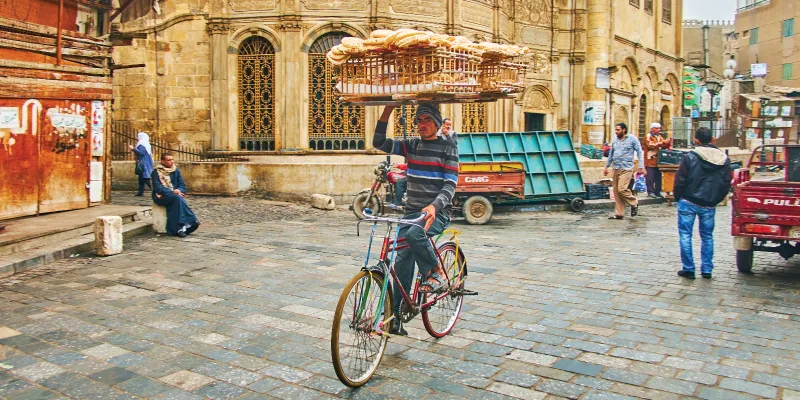
Founded in 2016, Endure Capital is a seed-stage VC that invests in local and international startups. Investments range from $50,000 up to $1 million. Portfolio startups include Boom Supersonic (supersonic aircraft) and Aspect BioSystems (3D bio-printing). It was also an early investor in Careem, which became the MENA region’s first unicorn exit (acquired by Uber).
HIMangel aims to provide startups with mentorship, business building, and connection with stakeholders. Its average ticket is $100,000 for a minority stake. It was launched by Khaled Ismail, former senior advisor to the Egyptian Minister of ICT.
It has invested in Fustany, Cubii, Rology Biodiesel Misr, and GBarena. “Demonstrate a passionate attitude. Your approach to the opportunity ahead should contain enough enthusiasm to convince others of the value of your endeavour and to build a successful business,” Khaled advises.
Kamelizer is an angel investment studio providing funds and expertise to tech-enabled Egyptian startups. Founded by Hanan Meguid, it regards tech as a key necessity to scale startups.
The book ends with a directory of useful resources for startups, such as conferences and meetup sites for entrepreneurs. These include RiseUp Summit, Creative Industry Summit, Egypt Career Summit, and Cairo Maker Faire.
To sum up, the book provides informative and practical insights into Cairo’s startup ecosystem, and serves as a useful framework for other cities to reflect on and improve their own startup ecosystems.
(Edited by Saheli Sen Gupta)





